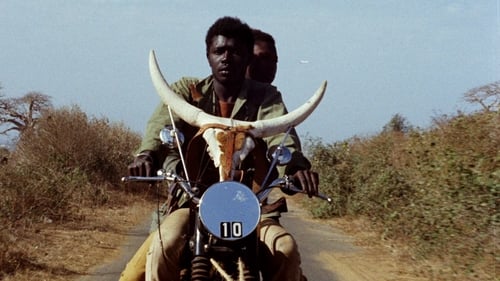
In 1972, Djibril Diop Mambety shoots "Touki Bouki." Mory and Anta are in love. Two young lovers share the same dream: to leave Dakar for Paris. At the fateful moment, Anta embarks. Mory stays alone on quay, unable to tear himself away from his land. Forty years later, "A Thousand Suns" investigates the personal and universal inheritance which represents "Touki Bouki." What has happened since? Magaye Niang, the hero of the movie, has never left Dakar. And today, the old cowboy wonders where Anta is, the love of his youth. Stories about family, exile and cinema meet between the sphere of intimacy and that of myth.

Helene
Burial of a Christian political activist in a Muslim cemetary forces a conflict imbued with religious fervor.

Rama (as Miriam Niang)
It is the dawn of Senegal's independence from France, but as the citizens celebrate in the streets we soon become aware that only the faces have changed. White money still controls the government. One official, Aboucader Beye, known by the title "El Hadji," takes advantage of some of that money to marry his third wife, to the sorrow and chagrin of his first two wives and the resentment of his nationalist daughter. But he discovers on his wedding night that he has been struck with a "xala," a curse of impotence. El Hadji goes to comic lengths to find the cause and remove the xala, resulting in a scathing satirical ending.

Idrissa is a rebellious little boy who drops out of school and joins a gang of hooligans that live on the beaches of Dakar. He gradually becomes detached from his family and adopted by his new friends who initiate him into the art of theft and the pleasures of yamba, marijuana.

Anta (as Mareme Niang)
A cowherd with a skull-mounted motorcycle and a university student meet in Dakar; put off by life in Senegal, they plan to make money in Paris.



